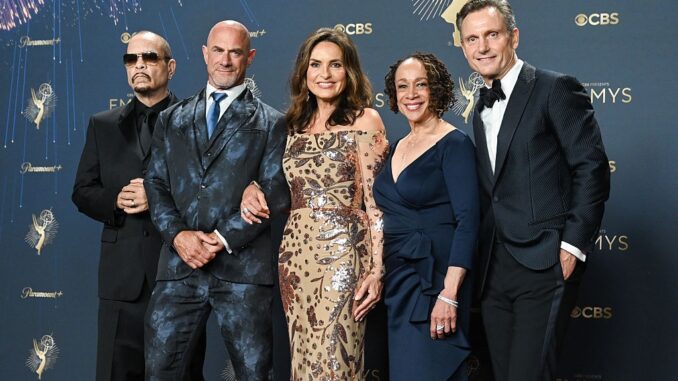
The Blood Still Stains: Why HBO’s “Oz” Remains Brutal and Relevant 22 Years Later
Twenty-two years after its debut, HBO’s first original drama series, “Oz,” remains a brutal and visceral depiction of prison life, a stark and unflinching portrayal that continues to resonate with audiences, if for different reasons. While other shows might have achieved greater critical acclaim and cultural cachet, “Oz” carved a unique and lasting niche through its uncompromising depiction of violence, its complex and morally ambiguous characters, and its willingness to confront uncomfortable truths about power, prejudice, and the nature of redemption. The show’s brutality, both physical and psychological, isn’t gratuitous; it’s integral to its exploration of a system designed to dehumanize and the consequences of that dehumanization.
“Oz” isn’t just about prison; it’s a microcosm of society, magnified and stripped bare. Emerald City, the experimental unit within Oswald State Correctional Facility, is a pressure cooker where race, religion, and gang affiliation clash constantly. We are introduced to this world through Tobias Beecher, a naive white lawyer whose life is irrevocably shattered by a drunk driving incident. His initial horror at the rampant violence and casual cruelty serves as a surrogate for the audience’s shock, a jarring contrast to the stark reality that unfolds. The series immediately establishes a visual language of pain, utilizing graphic depictions of violence to underscore the precariousness of life within “Oz” and the constant threat faced by its inmates.
The characters, both inmates and staff, are painted in shades of grey, blurring the lines between victims and perpetrators. Augustus Hill, the wheelchair-bound narrator, provides a philosophical commentary on the events unfolding, often posing uncomfortable questions about morality and justice. We see the flawed humanity of Warden Leo Glynn, struggling to maintain order while grappling with his own prejudices and bureaucratic pressures. Kareem Said, a charismatic Muslim leader, attempts to instill faith and discipline, yet even he resorts to questionable tactics to protect his community. And then there are the inmates themselves: the cunning and ruthless Ryan O’Reilly, the conflicted and ultimately tragic Simon Adebisi, the righteous and vulnerable Tobias Beecher. Their stories are intertwined, driven by primal instincts of survival, revenge, and fleeting moments of connection.
The show’s brutal realism extends beyond the physical violence. The psychological manipulation, the constant power struggles, and the dehumanizing conditions all contribute to a deeply unsettling atmosphere. “Oz” explores the ways in which the prison system strips individuals of their identity, forcing them to adapt or perish. It exposes the cycle of violence, demonstrating how individuals, shaped by trauma and deprivation, perpetuate the very system that imprisons them. We see this in the rise and fall of gang leaders, in the shifting alliances, and in the desperate attempts by inmates to find meaning and purpose in a world devoid of hope.
While some might argue that “Oz’s” reliance on shock value has diminished its impact over time, I argue that its themes remain profoundly relevant. The show’s exploration of racial tensions within the prison system mirrors the ongoing struggles with racial injustice in the broader American society. Its portrayal of the dehumanizing effects of incarceration raises crucial questions about the effectiveness of prisons as tools of rehabilitation. Its focus on the moral compromises made in the pursuit of power and survival continues to resonate in a world grappling with political polarization and the erosion of ethical boundaries.
Moreover, “Oz” served as a groundbreaking precursor to the wave of complex, character-driven dramas that have defined HBO’s success in the 21st century. It laid the groundwork for shows like “The Sopranos,” “The Wire,” and “Game of Thrones” by pushing the boundaries of what was acceptable on television, challenging viewers to confront uncomfortable truths, and demanding their emotional investment in flawed and morally ambiguous characters.
In conclusion, “Oz” remains a brutal and powerful piece of television, not because of its gratuitous violence, but because of its unflinching portrayal of the human condition under extreme pressure. It’s a show that forces us to confront uncomfortable truths about power, prejudice, and the limitations of the justice system. Twenty-two years later, the blood may have dried on the walls of Emerald City, but the stain it leaves on the viewer remains, a stark reminder of the darkness that lies within us all and the consequences of a system that often fails to offer redemption. It’s a show that continues to challenge, to provoke, and to remind us that even in the deepest depths of depravity, a glimmer of humanity, however faint, can still persist.
